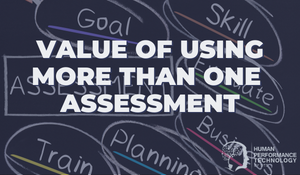In a Nutshell: 6 Attitudes
Eduard Spranger identifies six basic “attitudes,” “types,” or “values” that are thought to be applicable across human time and culture. These attitudes can be thought of as lenses through which people view the world, each with a fundamentally distinct value conception.
The descriptions that follow consider these types in their purest sense or most extreme expressions. In practice, some people will be a blend of many attitudes while others will be dominant in one or two.
Spranger (1882 – 1963) was a German philosopher and psychologist. One of his most notable contributions to the field of psychology was his theory of “attitudes,” outlined in his book Types of Men (1928). In this book, Spranger outlines his attempt to carry out a new method of differentiating human psychological characteristics, pointing to the fact that the old the four temperaments model had endured for thousands of years as the prevailing classification method, but was insufficient to fully account for the complex expressions of the human soul.
Spranger proposed six basic “attitudes” to understand the most significant forms of what we might today call “personality types.” The multiplicity of human endeavours, concerns, and actions are seen as expressions of these deeper archetypes. For example, in the preface to the 1928 edition of Types of Men, Spranger explains that the reason he didn’t include a type for “Pioneer” (the adventurer, explorer, inventor) was because he considered this to be an expression of the political type, which is primarily rooted in the concern for power, achievement, and conquest. Similarly, the widely popular cultural practice we call “sport” is seen as being partly an expression of the “political” type and partly an expression of the “aesthetic” type, and as such he did not feel the need to develop it into its own separate category of attitude. The 6 attitudes primarily arose out of Spranger’s personal observations, psychological expertise, and general knowledge of literature rather than being informed by a specific study or mass statistical analysis. Spranger was wary of developing a theory of personality too heavily influenced by laboratory results or the clinical setting as doing so would likely create a model biased by the reigning cultural beliefs of the time and since he was interested in the fundamental psychology of mankind, a vast number of figures across history are incorporated into his view.
Spranger was particularly concerned with the interactions of the whole and suggests that it would be an error to imagine any one of the types really existing in a purely isolated state, without being affected by the others. It is the dynamic interaction between the six attitudes that makes human personality so complex and interesting. While he does not claim his approach is by any means perfect, Spranger suggests these types serve to bring some order to the inherently confusing and chaotic area of study that is personality psychology — which, at Spranger’s time, was in its very infancy.
Although Spranger did not invent a questionnaire or psychometric instrument to measure the six attitudes, a number of instruments have been developed by other psychological researchers. In the 1930s, Gordon Allport developed the first Spranger-based instrument called “Study of Values.” In the 1980s, TTI Success Insights developed a series of assessments based on Spranger and Allport’s work, which is known as the Personal, Interests, Attitudes and Values (PIAV) assessment. The report is known as the 12 Driving Forces.
The Theoretic Attitude – a pure scientist or scholarly type with a passion for objective knowledge who holds truth in the highest regard. The person who “recognises nothing as beautiful or ugly, useful or useless, holy or impious but only as true or false.” This type of individual likely sees himself or herself as an “intellectual.” They are pained by ignorance and by the ignorant. They’re easily absorbed by puzzles, riddles, mysteries, and strategy games such as chess. Nothing is so tempting as a book store. They spend their lives in pursuit of solving problems, asking and answering questions, tinkering with ideas, and making the unknown known. Their love is the pleasure of discovery.
The Economic Attitude – a pragmatist who “in all the relations of life prefers utility to all other values.” This is not just someone who cares about money, but in what money affords: the ability to maximise utility. While not necessarily the type who invests in the stock market, this is an individual who is passionate about return on investment in the broadest sense and will place a great deal of value on where, how and with whom they spend their time. Nothing is so pointless as a purely academic discussion. Just as those with a theoretical attitude are often attracted to scientific areas of study, people with an economic attitude naturally gravitate to business and entrepreneurship. Where a lover of art looks at a painting and asks, “Isn’t it beautiful?” the utilitarian asks, “How much is it worth?”
The Aesthetic Attitude – aestheticism is summarised as “the formed expression of an impression.” Impression deals with input from the world as it is captured by our senses and fires the imagination, expression deals with the manifestation of mental, emotional, and physical states, and form deals with the interplay and harmony between impression and expression. The aesthetic person is one who is attuned to the world in a unique way. They see with the eye of the artist. They may be artists or art critics, professional or amateur. All aesthetics are lovers of art, though specific interests and tastes won’t be uniform. These creative types are typically interested in the states that objects of beauty produce; sensual pleasure; experience — especially new sights, cuisine, songs, and cultures; self-development (“they make out of their lives works of art”); and losing themselves in the moment. A true aesthetic experience is defined as “a state of pure contemplation, a letting oneself go in the manifold nature of actual or imagined objects.”
The Social Attitude – a caring soul whose fundamental nature is driven by the “impulse to give oneself to another” and whose basic attitude towards life affirms the sacredness of life itself. In the pure sense, or in its highest development, the social value is called “love” — defined as “interest in the value possibilities of another.” The spirit of this love is the foundation of many major religions. Social types will often be drawn to areas such as teaching, nursing, clergy, poverty alleviation and non-profit causes. Where money makes people greedy, love is giving. Where knowledge makes people proud, love is humble. The social strives to create all-inclusive communities, which is not to be confused with endeavours at equality in the sense of making everyone the same, an aim that would be theoretically or politically motivated. In its full expression, the social’s chief concern is human flourishing and the development of the potential in others, without any hidden political agenda or expectation of return.
The Political Attitude – not to be confused with someone who seeks a job in politics, the political type in the broadest sense is concerned with the expression of power; someone who seeks to direct one’s own life and the lives of others. The political type is attuned to the fact that hierarchical structures and relations of power are fundamental to life. Humans who are thus born into systems of dependence and interdependence (family, friends, colleagues, communities) as well as oppositional relations (antagonists, competitors, enemies) must recognise that in order to survive, meets one’s needs, and achieve anything of little or great significance, it requires the navigation of power structures. Where the scientist sees knowledge as an end in itself, the political type accords to the maxim “knowledge is power.” He or she is a student of human nature. Politics is one expression of this attitude, though the stakes tend to be more or less serious, whereas sport is also an expression of power-seeking through competition, which tends to be more playful. A political type may search for influence in every way and at any price, or they may seek only a certain level of status in a narrow field. An effective political type is likely to be seen by others as an over-achiever or a strong leader, although whether their tendency is toward a tyrannical or a more democratic leadership style will depend on other factors.
The Religious Attitude – this is not necessarily someone who is defined by membership with a religious organisation. It is an attitude expressed in the person “whose whole mental structure is permanently directed to the creation of the highest and absolutely satisfying value experience.” In other words, the highest and richest revelations that some may call God or nature or the universe in the sense of a totality of oneness. Some are “immanent mystics” who find something divine in everything and this sense of meaning infuses their lives with vitality and a love for all people and all life; he or she is a kind of spiritual optimist. Contrast this with the “transcendental mystics” who grasp the divine in a way that is less dependent on cultural values and material attachments. He or she may believe that everything is fundamentally meaningless, and finds a certain satisfaction in spiritual pessimism, in abandoning worldly pleasures for a life of meditation, to experience that which is beyond purely logical or rational comprehension. Religiosity is defined as “the condition, instinctive or rational, in which a single experience is either positively or negatively related to the total value of life.”
These six attitudes are still relevant in today's work models as we aim to raise engagement, motivation and self-awareness across dispersed teams. Understanding these attitudes in a very practical and applicable way can help people connect on a deeper level while using a common language to discuss differences. Consider learning more about this by understanding the TriMetrix EQ®.

Theo Winter
Client Services Manager, Writer & Researcher. Theo is one of the youngest professionals in the world to earn an accreditation in TTI Success Insight's suite of psychometric assessments. For more than a decade, he worked with hundreds of HR, L&D and OD professionals and consultants to improve engagement, performance and emotional intelligence of leaders and their teams. He authored the book "40 Must-Know Business Models for People Leaders."



We Would Like to Hear From You (2 Comments)